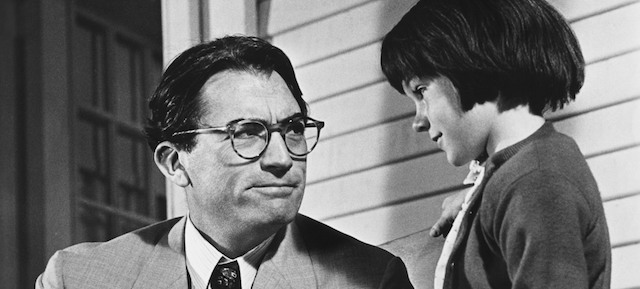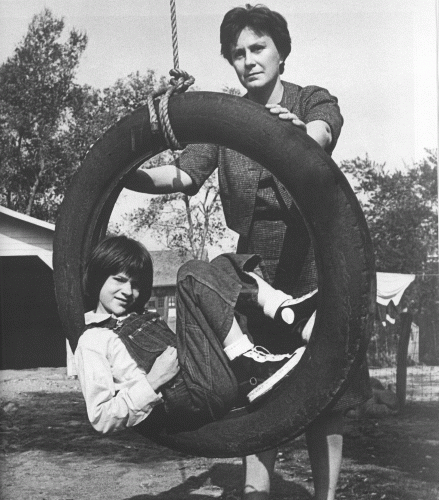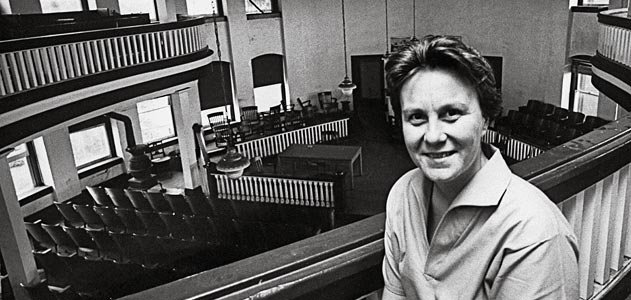
From our friend Jeff Dean, another Alabamian who knows a thing or two about procrastination. Zing!
[Some spoilers below]
 You probably shouldn’t read Harper Lee’s “new” novel, Go Set a Watchman.
You probably shouldn’t read Harper Lee’s “new” novel, Go Set a Watchman.
If the book interests you as a “sequel” to her iconic To Kill a Mockingbird, you’re apt to be profoundly disappointed: the characters seem almost entirely disconnected from their past selves, and the narrative collapses by the end into little more than a recitation of bizarre and esoteric arguments concerning Civil Rights. But the text is short, the font is large, and the spacing is liberal; so the short story may be worth engaging for other reasons.
Some will be curious to learn about Lee’s writing process. GSAW is claimed to be a prior story, left behind in favor of TKAM, perhaps at the suggestion of a clever editor. While the text does read like a rough draft in many ways, a noteworthy review by Adam Gopnik in the New Yorker points out insufficient character development gives the distinct impression the author assumes her characters are already known to her readers. Some have suggested Harper Lee did not write this book, but authorship and provenance are questions beyond my ability to address.
As far as those characters go, the Dramatis Personae are distinct. Jem and Dill are sidelined, and Calpurnia appears only as a plot point. The “freak” that Flannery O’Conner said is so essential to Southern literature comes no longer in the form of curious Boo Radley but rather as eccentric Uncle Jack. The only relationship with truly notable development from the prior story is that of Scout (often called now by her proper name, Jean Louise) and her father, the iconic Atticus Finch. You’ve no doubt heard by now that this development has not been well received: Atticus Finch, the hero who risked his reputation in his Deep South community to save a wrongfully accused black man, is revealed himself to be a racist. Many readers, myself included, consider this to be the ultimate betrayal.
How could such a man fall from grace? How could one travel so far from virtue into villainy? Atticus can’t! It’s impossible! Then suddenly that protest transitions into an answer: the gut instinct is right. He couldn’t possibly change so much. In fact, he didn’t change. Rather, we failed to see him clearly before because the story was never entirely true: Scout was not a reliable narrator.
The concept of the unreliable narrator frightens readers like me. If I invest time into a story, I want to believe my time has not been wasted. But as a reader of Mockingbird, I have become convinced by the pervasive nature of human frailty. So even when a narrator is striving to tell the truth, I’m obliged to accept that the story is filtered through the lens of her flawed humanity. No story is “true” in the way I long for it to be.
With these points in mind, I’d like to propose one important takeaway from this new book that I believe might be uniquely Gospel-oriented: the change we see in Atticus Finch is better understood as a change in Scout, reflecting her maturity as an individual and demonstrating the inevitable disappointment that each of us must face as the pernicious pervasiveness of Original Sin becomes undeniable.
That the changes are in Scout is not an observation I can claim credit for: several thoughtful scholars have noted that Atticus’ actual words and actions in TKAM are those of an able lawyer and a champion of abstract justice…not those of a proto-civil rights leader. That Atticus sits on the Maycomb Citizens Council and has attended rallies of the Ku Klux Klan is entirely in keeping with many “good” Southern white men of his day. Uncle Jack defends him using precisely this argument: in a time of great injustice, the bar for decency must be set fairly low.
But Scout is outraged and we, through her eyes, are as well. Atticus Finch is a hero to all of us who grew up on the bleachers with a book in hand—a kind of “Rudy” for the burgeoning literati. He was the first character many readers like myself found who could be admired uncritically. When Atticus shoots dead with one shot a rabid dog trolling toward his children, the idea that power is greatest when demonstrated as restraint became a mantra for my life. I worshipped this man.
And therein lies the problem. No man is worthy of worship, and life has confirmed this for me. A significant part of growing up is accepting this agonizing truth. Politicos were forced to learn it when Nixon resigned, and Pete Rose, Mark McGuire, and Lance Armstrong are just a handful of the athletes who have caused that same disappointment among sports fans. Was it not inevitable that bookworms like me must eventually face our own loss of innocence? In one GSAW scene, Scout sits at an ice cream parlor built on the spot where her childhood home stood, watching her vanilla twist melt and realizing painfully that time decays every good thing. Has your life shown you anything different?

GSAW forces us to recognize that Atticus Finch was never the distinctly Southern paragon of noble virtue we believed him to be. Rather, his character was filtered to us through the eyes of a narrator made unreliable by her youth, her innocence, and her subconscious need to believe that a world wherein evil could literally march down Main Street might still possess some touchstones of order and goodness. But that world doesn’t exist outside of storybooks. In the real story of our world, all things are touched by sin. Jesus himself said to call only God “good”.
So finding any “good news” in all this disappointment is surely not easy. Were it not for the Gospel, the loss of our Atticus Finches would be cause only for cynicism and despair. Whom can we trust if not our heroes? How do we live in a world in which even our mythological gods philander and deceive?
The story of the Gospel is the story of Goodness coming to us. It is the story of where life can be found even after death. There is an important sense in which Atticus Finch has now been swallowed up by the grave, but Christians are Resurrection People, looking for the day in which God fulfills the promise to make all things new. We face disappointment in this world, but look for restoration in the world to come.
I believe one more consideration is of interest to Mockingbird. The theme of “good fathers” is important here, and it is worth noting that Atticus’ failures as a man do not wash away his gifts as a parent. In the final pages of the novel, Scout in a blind rage finally confronts him with all of his newly revealed faults. But Atticus doesn’t take the bait. In fact, by standing stoically and accepting his daughter’s condemnation without reaction, Atticus infuriates Scout all the more. Later her Uncle forces her to recognize the grace implicit in a refusal to defend oneself from judgment. Atticus goes humbly like a lamb to the slaughter of Scout’s harsh words. I’m slightly less interested in this dimension because I think the disparate elements of Atticus’ personality have perhaps become too incongruous to represent a real character, but the idea that grace can make a good father from a flawed man is an idea that I believe possesses essential truth.
Go Set a Watchman is itself too deeply flawed to stand alone as a novel. It has surely been published as a curiosity for fans of To Kill a Mockingbird and otherwise would never have been approved by an editor. But it nevertheless proposes a decent-enough counterpoint from which a reader could better triangulate her understanding of these beloved characters. Flannery O’Conner was emphatic that the south is “Christ-haunted” and therefore all stories it produces somehow reflect the Gospel. The juxtaposition of these two works by Harper Lee teaches us something greatly important about human weakness and the dangers of storing our treasures where moths eat and sequels decay.
Atticus Finch did not die for your sins, and Go Set a Watchman makes that much easier for this bookworm to remember.

COMMENTS
2 responses to “Atticus Finch Did Not Die for Your Sins”
Leave a Reply














This line was truly wonderful and meaningful to me: “the idea that grace can make a good father from a flawed man is an idea that I believe possesses essential truth.”
Thanks very much for such a thoughtful meditation.
[…] course, it doesn’t keep us from wanting to be just one unified character, living the heroic lead in our big story. We have always wanted to be lead! Within Christianity, […]